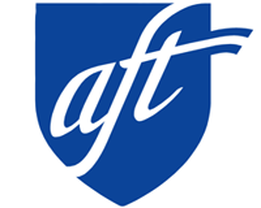"Let us wage a glorious struggle against illiteracy, poverty and terrorism. Let us pick up our books and our pens, they are our most powerful weapons. One child, one teacher, one book and one pen can change the world. Education is the only solution."
— Malala Yousafzai, United Nations
Stand with Malala for Girls' Education Worldwide
|
|
In this lesson, students will explore the importance of educating girls and examine the barriers that keep girls out of school—all the while learning to become advocates for education.
Studying the girls' education movement can shine a recent, relevant perspective on a range of issues covered in U.S. History, including women's suffrage and gender studies. Such study also provides an opportunity for students to learn about women's rights leaders like Elizabeth Cady Stanton, Clara Barton and Eleanor Roosevelt. This lesson uses the story of gender rights activist Malala Yousafzai. On October 9, 2012, Malala was riding the school bus home when Taliban militiamen shot her. Malala was already a well-known advocate for girls' education in Pakistan, which has one of the worlds' lowest rates of school enrollment for girls. Malala survived the cold-blooded attack and has continued to advocate heroically for her fellow countrywomen and girls around the world. Watch the video on the left (3:40), an award winning video from the Speak Truth To Power video contest that highlights Malala's work as a human rights defender. |
Step 1: Hook -- Stand Up for Education (5 minutes)
|
Students will brainstorm about how they benefit from a high-quality education. Instruct students to stand up if they think all individuals should have access to a quality education (they should all stand). The boys will then sit down, and the girls will remain standing.
Now ask the girls to count off, 1, 2, 3. Ask only the number 1s to sit down and the number 2s and number 3s remain standing. Reveal that the girls who sat down represent the fact that only one-third of girls in Pakistan have access to primary school education. The two-thirds who remain standing represent those unable to attend school. |
Step 2: Videos and Other Teacher Resources (10 minutes)
|
|
As an introduction, we suggest screening the Girl Rising trailer (2:26), The Simple Case For Investing in Girls (1:38) or Malala's speech on July 12, 2013, at the United Nations (17:42). You can find the written text for Malala's speech here. You can also show the winning Speak Truth To Power video at the top of the page that highlights Malala's work as a human rights defender.
The PowerPoint presentation and accompanying worksheet introduce students to facts about Malala Yousafzai, the situation in Pakistan and the promotion of girls' education worldwide. The PowerPoint concludes by linking to Malala's speech at the United Nations. This short CNN video news report (2:29) introduces an animated cartoon super-hero who fights for girls' education; the first episode of the animated cartoon can be found here (22:26). The world reacted with shock upon hearing the news of nearly 300 schoolgirls kidnapped in Nigeria by terrorists seeking to punish them for daring to strive for an education. Malala speaks (1:37) about the tragedy that has befallen her "Nigerian sisters." Listen to the story (1:59) of one of the girls who managed to escape the terrorists. Watch Michelle Obama's address to the nation (5:24) in support of the kidnapped Nigerian schoolgirls and their determination to receive an education. In the same video, hear the former First Lady's praise for Malala's leadership in the cause for worldwide girls' education. As of early May 2017, 82 of the captured girls had been released from captivity. However, there are still around 100 Nigerian schoolgirls missing. |
Step 3: Standards-Based Exercise: Comparative Essay (15 minutes)
|
In 1851, at the Women’s Convention in Akron, Ohio, abolitionist and women’s rights activist Sojourner Truth electrified the audience with an impromptu speech that we now call “Ain’t I a Woman.” She was among the first in a long line of fighters for gender equality and opportunity.
Although Truth’s short speech was never formally written, you can read a version of it here or listen to Pulitzer Prize-winning author Alice Walker read it here (3:13). Make the link to the present by introducing Malala to your class through reading her diaries. Use this lesson plan to connect the lives of these two pioneers in fighting for the rights of women and girls. |
Step 4: What Can Students Do? (10 minutes)
|
Encourage students to use what they have learned to make a difference. Suggestions for student involvement include liking or following the Malala Fund on Facebook to post messages or videos of support, or organizing a topical film festival in your school that may include a screening of Girl Rising and other videos (1 hr 41 min).
Students should also be encouraged to develop their own ideas for taking action. Support the kidnapped Nigerian schoolgirls: take a photo holding a sign with the #BringBackOurGirls slogan. Here are student and teacher examples. Learn more about how #BringBackOurGirls became an international social media phenomena. |
Additional Resources
|
AFT Resources
|





